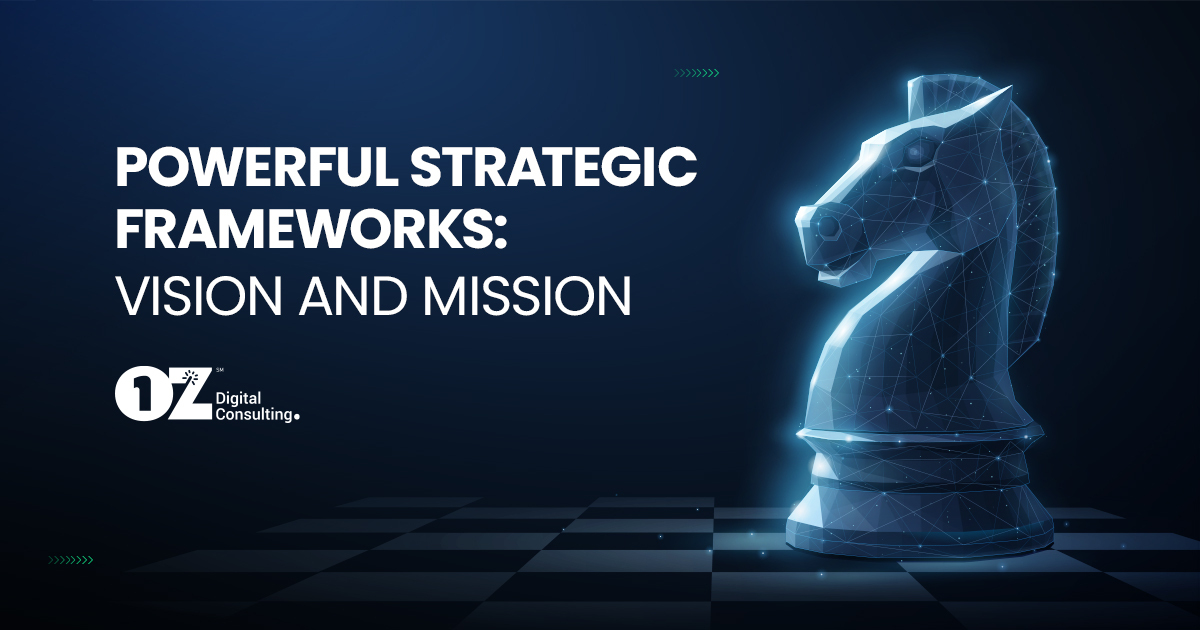
“Vision without action is a daydream. Action without vision is a nightmare.” – Japanese proverb
How do you ensure that the strategic initiatives you are focusing on are in alignment and fully support the overall direction of your company? No, seriously, how do you (and your organization) get alignment to the organization’s aspirational path forward?
When it comes to making strategic decisions, it’s necessary to have a framework that allows objective decision making across all initiatives (see my previous post). An effective framework is a flexible framework, one that needs to be able to support the organization as things change – whether the fluctuations are caused by external or internal forces. As change occurs, the framework needs to allow initiatives to be periodically reevaluated against the new set of criteria. Flexibility is key.

The flexible framework, to be a successful business driver, needs to be grounded in the overall goals and objectives of the organization, which change much less often and much more slowly. This ensures that the criteria used to evaluate initiatives aligns with the organization, its goals, and its positioning both for the future and, to some degree, the past. At the highest level, every initiative needs to be able to be tied back directly to the fundamentals of the organization: its vision and mission.
The vision and mission of an organization are crucial to ensure alignment across everything the company does. As Michael Porter is quoted as saying: “The purpose of a vision statement is to provide a clear, inspiring picture of the future that your organization is trying to create.” If initiatives aren’t directly relatable back to the vision (and mission), a future that is directionally different where the organization is looking to go can happen. What vision statements and mission statements provide is directionality, allowing everyone in the organization to be aligned and facing in the same direction, but giving various teams enough leeway to allow different paths to get there.
Using the insurance industry as an example, some companies have missions to provide peace of mind to their customers by offering quality insurance products. Allstate’s mission is “to help people realize their hopes and dreams through products and services designed to protect them from life’s uncertainties and prepare them for the future.” Mapfre Insurance’s vision is “To be the most trusted global insurance company,” and its vision is “We are a multinational team that works to constantly improve our services and develop the best relationship with our clients, distributors, suppliers, shareholders, and society at large.”

When creating a strategic framework, these vision and mission statements need to drive specific criteria that will be different for each company. For instance, Allstate’s mission to “realize hopes and dreams” and have products “that protect from life’s uncertainty” means that criteria that support these need to be woven into the initiatives for those initiatives to be prioritized. On the other hand, Mapfre’s focus on “improving services” for “clients, distributors, suppliers, shareholders, and society” means that initiatives aimed at improvement (innovation maybe?) and a broader stakeholder set (rather than just one) should possibly be evaluated at a higher level than other options. This could involve launching new and innovative improvements to existing programs, and offering platforms that bring in distributors and suppliers, rather than one or the other.
Similarly, other companies like State Farm, Cincinnati Insurance Company, and Nationwide vision and mission statements would also drive different criteria for their strategic frameworks. Nationwide’s mission statement includes that they want “to be the world’s most customer-centric insurer” and even specifically mention so on their website (Customer experience at the heart of Nationwide protection). Because of this, almost all initiatives should have their customer’s experience at the heart of what they are trying to accomplish. (I say ‘almost’ as some initiatives are what we call ‘Foundational’ that are needed to be done first to provide for other, higher ranking programs – but more about that in a future article). The Cincinnati Insurance company’s vision is “to be the best company serving independent agents.” This easily translates to (one or more) criteria that will rank initiatives focused on serving independent agents better than those that don’t.
Can you see how each of them will drive a different set of criteria for the framework to ensure that initiatives and programs under consideration are more aligned with organizational aspirations? Some of the criteria will be the same for multiple organizations, but some will be very specific to a single organization.
Two more examples

FM Global’s full mission statement is:
We have a unique risk management focus. Our clients look to us to develop cost-effective insurance and risk-financing solutions, to minimize business interruption and financial impact if a loss does occur.
We meet these needs with customized programs that draw upon our:
- State-of-the-art loss prevention engineering and research
- Risk management skills and support services
- Tailored risk-transfer capabilities
- Superior financial strength
Even as we evolve, our focus remains the same: When our mutual policyholders benefit, our business benefits.
Supporting this mission statement and everything that flows from it (strategic directives/imperatives, goals, KPIs) is much different than supporting The Hanover’s:
Vision: To be the premier property and casualty franchise by helping independent agents transform the way customers experience insurance.
Mission: To help our partner agents and policyholders prepare for and recover from the unexpected.

Creating the specific criteria for each of these mission and vision statements is the art behind the science. They need to drive to the heart of the meaning of the words and very often will need input from the executive level of the organization. The criteria also need to be well defined (and measurable) to be consistently applied in the framework across initiatives. It’s not as easy as it seems at first glance, but it’s a necessary step that will drive much better results. One needs to be able to draw a straight line from each program and initiative back to how it supports the overall focus of the organization.
The next level down from these in creating the framework would be the strategic drivers, organizational goals, and specific KPIs and metrics (all of which should support the Vision and Mission). More about these in future articles.
Having a framework for objective strategic decision-making is crucial for any organization. Such a framework needs to be flexible enough to accommodate changes in the company, in the market, and in society as a whole, but should also be grounded in the company’s overall vision and mission. The vision and mission statements of a company will drive some important criteria for the strategic framework that are used to ensure alignment of initiatives with achieving the organization’s overall goals and objectives.
Hi, I am Murray Izenwasser, the SVP of Digital Strategy at OZ Digital Consulting. If you would like to discuss creating such a framework, contact me – that’s what my team and I do for our clients. In fact, we have a platform that we use with our clients called Launchpad where we do exactly this, as we help them build out their digital strategies. Message me about how we can do this for you.
(And, just as an aside, the images were created by an image AI generator based on the title of this article.)



